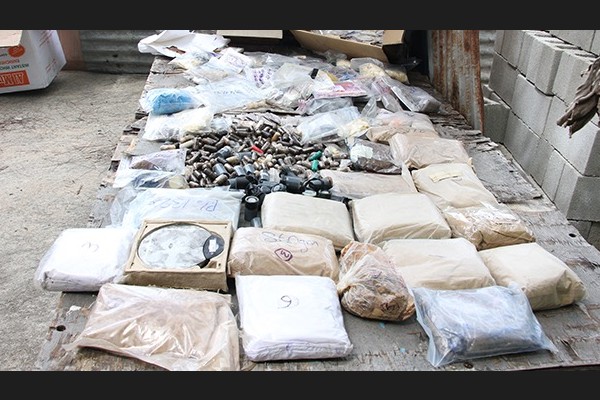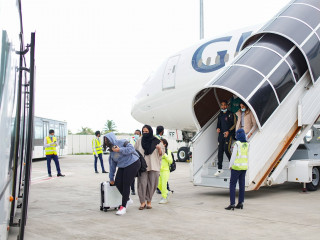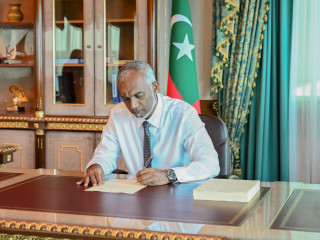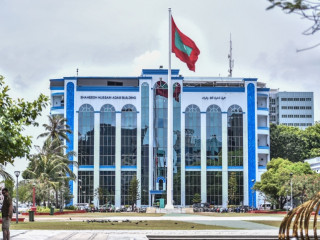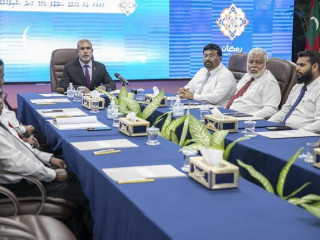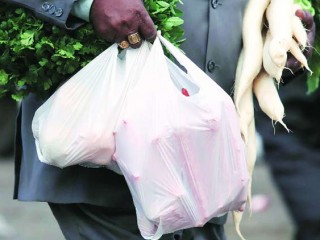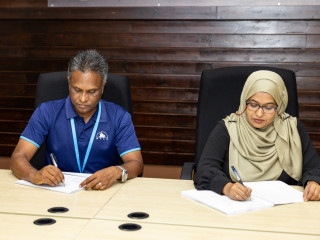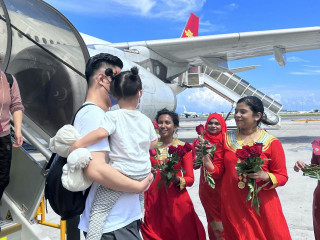Maldives is a near-barren country. Our soil is made-up of dead corals, and thus has very little capacity for produce. As such, most of everything that the people need are imported. This chain of tiny little islands has become a port, positioned beneficially at the heart of the Indian Ocean.
With the influx of goods, also came the bad. With little to no chemical industries, Maldives' drug problem is primarily that of imported opiates and cannabis derivatives. One of the most shocking drug operations in recent history led to the arrest of a local imam and his wife, who were caught with large quantities of cannabis that were packed in food boxes – fitting too, as the arrest was made during the month of Ramadan.
While the veil-clad woman remains in police custody even today, her family has assured local news outlet that she is innocent and had no knowledge of the contents of the container she had 'unwittingly' attempted to bring into the country. It would be irresponsible to speculate as to the truth behind the matter, before investigations and eventually trials are completed, but it is highly unlikely that an imam and his wife – who are reportedly respected in their community – would knowingly bring in 24 kilograms of cannabis.
This story is familiar. It has been employed by networks where the likes of 'Cocaine King' Pablo Escobar, Frank Lucas, and Giselda Branco have been at the helm. They approach middle aged couples or other social groups that may seem less surreptitious at airports, give them financial assistance, and then ask them to carry a package for them. Some are privy to the knowledge of what the contents of these packages are. Some are not.
What can be said is that the drug trade is one of the largest in the country. The government is party to all three conventions on narcotics, ratified by the United Nations. These include the 1961 Single Convention on Narcotics Drugs, the Convention on Psychotropic Substances, and the Convention against Illicit Traffic in Narcotics Drugs and Psychotropic Substances.
Maldives passed its first official legislation on banning drug use in 1977, after a man was found with 350 grams of cannabis – well over the 14-gram cap, which if exceeded qualifies for trafficking charges.
Article 2 and Article 3 of the Law on Drugs prohibit the manufacture, in any form of prohibited drugs in the Maldives. 33 It also prohibits the manufacture of controlled substances in violation of the law. These provisions make the importation, supply, possession and sale of chemicals for the manufacture of narcotic drugs and controlled substances, punishable on the same basis as the offence of trafficking. These laws prescribe heavy sentences for drug offenders, but currently do not cover, to the requisite degree, the trafficking of precursor chemicals. 34 Draft precursor control legislation has now been presented to the Office of the Attorney-General, which, once enacted, will regulate and reinforce the import and distribution of pharmaceuticals including chemicals.
In 1995, the parliament had passed amendments to this law that listed substances that were completely illegal and substances that were controlled. However, this was only the beginning.
Now, in 2017, substance abuse has become commonplace. Almost every extended family has an 'uncle' or 'brother' that has been shunned for either full-fledged addiction or recreational use – both of which are social taboos in the country. The state has taken several steps to tackle the issue. The National Health Policy of Maldives recognizes drug abuse as a challenge faced by the community and rooted in factors such as social stress, environmental health problems and age related problems. The policy envisages addressing these issues appropriately. A number of Drug Awareness Programmes – aimed at various sectors within the community – are either conducted or organized by the NNCB. An awareness programme is conducted annually for all parents of school children of below Grade 7 in the schools of Malé and other atolls. Life skills and drug awareness classes for students above grade 8 are conducted annually. The Atoll Awareness Programme aims to cover the entire Maldives within the next three years, with programmes conducted in every inhabited island in the country. These awareness programmes target atoll and island chiefs, healthcare workers, teachers and island committee chairpersons. Eleven atolls have to date been covered under this programme.
Perhaps it is because of the various attempts at reducing substance abuse that has only served to amplify the problem, or perhaps caused by the aforementioned socio-economic issues. The fact remains that it is an industry that has pierced into every household and continues to corrupt everyone, from the young and idealistic to the poor and down-trodden. It is an issue that requires further scrutiny.
But it is not beyond empathy. In the capital city, we live on a landmass that is 5.8 square kilometers. With a population large enough to make it one of the most densely populated cities in the world. Throw in political rivalry and discord along with heavy socio-economic problems and it effectively becomes haven for a sin and social woe to fester and grow.
